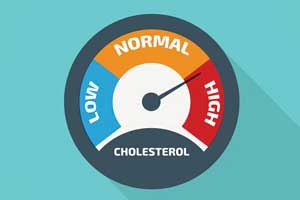- Home
- Editorial
- News
- Practice Guidelines
- Anesthesiology Guidelines
- Cancer Guidelines
- Cardiac Sciences Guidelines
- Critical Care Guidelines
- Dentistry Guidelines
- Dermatology Guidelines
- Diabetes and Endo Guidelines
- Diagnostics Guidelines
- ENT Guidelines
- Featured Practice Guidelines
- Gastroenterology Guidelines
- Geriatrics Guidelines
- Medicine Guidelines
- Nephrology Guidelines
- Neurosciences Guidelines
- Obs and Gynae Guidelines
- Ophthalmology Guidelines
- Orthopaedics Guidelines
- Paediatrics Guidelines
- Psychiatry Guidelines
- Pulmonology Guidelines
- Radiology Guidelines
- Surgery Guidelines
- Urology Guidelines
Familial hypercholesterolemia: Independent risk factor for MACCE in young patients, finds study

Familial hypercholesterolemia (FH), characterized by high blood levels of Low-Density Lipoprotein Cholesterol i.e LDL-Cholesterol, is an independent risk factor for young patients after a coronary event. Therefore, it is necessary to optimize lipid treatment of patients with FH after a coronary event - is the bottom line of the latest study published in the journal BMC.
Familial hypercholesterolemia is an autosomal dominant genetic disease characterized by high levels of low-density lipoprotein cholesterol (LDL-C), cutaneous xanthomas and premature coronary artery disease (pCAD), which has recently become a major health concern around the world. Familial hypercholesterolemia is an important cause of premature coronary artery disease (CAD). Prognosis data are lacking in patients with FH and coronary artery disease particularly in the era of widespread statin use.
The study compared long-term prognosis between patients with and without FH after a coronary event. For the same, 865 patients younger than 40 years of age with CAD were enrolled were In this retrospectively studied. FH was diagnosed based on the Dutch Lipid Clinic Network algorithm. Baseline characteristics, coronary angiographic findings and prognosis during median follow-up of 5 (3–8) years were compared between patients with or without FH.
Key findings of the study
- Definite or probable FH was detected in 37 patients (4.3%) and possible FH in 259 patients (29.9%).
- FH was associated with significantly higher prevalence of multi-vessel lesions and higher Gensini score.
- In the subset of 706 patients for whom follow-up data were available, 127 (18.0%) suffered major adverse cardiovascular and cerebrovascular events (MACCE).
- FH was associated with increased risk of MACCE, independently of age, sex, smoking, body mass index, hypertension or diabetes mellitus.
The authors concluded that based on the data it could it is evident that FH is an independent risk factor for long-term MACCE in young patients after a coronary event. It is necessary to optimize lipid treatment of patients with FH after a coronary event recommended the authors.
For further reference, click on the link

Disclaimer: This site is primarily intended for healthcare professionals. Any content/information on this website does not replace the advice of medical and/or health professionals and should not be construed as medical/diagnostic advice/endorsement or prescription. Use of this site is subject to our terms of use, privacy policy, advertisement policy. © 2020 Minerva Medical Treatment Pvt Ltd